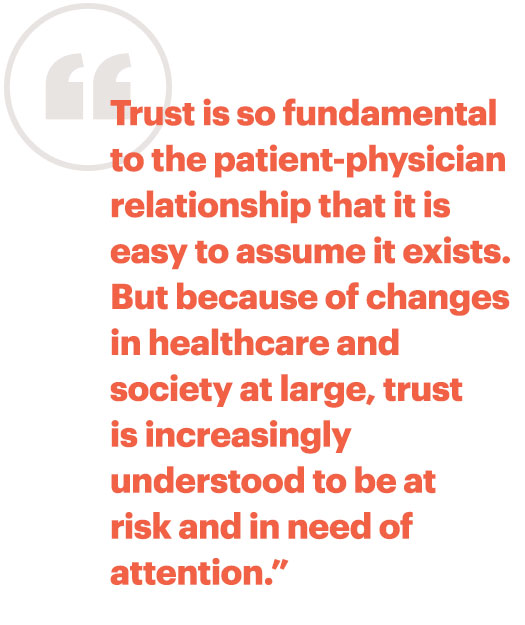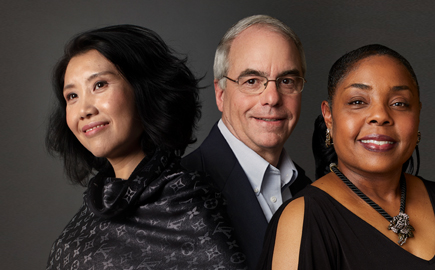Building trust in tomorrow's medicine
Global health trends have undergone a dramatic shift since 1990: Chronic diseases such as heart disease, cancer and diabetes have replaced infectious diseases and malnutrition-related childhood illnesses as the leading causes of death and disability outside of sub-Saharan Africa.1
Additionally, patients and caregivers are demanding change. Dissatisfied with poor service and lack of transparency around price, quality and safety, today's healthcare consumers expect solutions that are coordinated, convenient, customized and accessible.2
Trust in medical advances is critical
It will take dramatic advances in medicine along with other changes to address these challenges if we want to live longer and healthier. New technologies and treatments—precision medicine, digital therapeutics, 3D printing, immunotherapy, gene and stem cell therapies and artificial intelligence—have arrived or are on their way.
But there is another essential factor to ensure people embrace dramatic medical breakthroughs and ensure that the next miracle drug or therapy comes to fruition: trust.
Trust is so fundamental to the patient-physician relationship that it is easy to assume it exists. But because of changes in health care and society at large, trust is increasingly understood to be at risk and in need of attention.3

USP: Partnering to envision the future
In the same way USP has helped to build trust in the quality medicines physicians and pharmacists have relied on for the past 200 years, we envision a world in which we continue to establish standards for medical advances so that everyone has access to quality, safe and beneficial medicines and foods.
We approach this vision with urgency and purpose, strengthened by the collective efforts of dedicated expert volunteers, members and staff, and with key stakeholders across the globe.
USP recently worked with the MIT Center for Collective Intelligence to bring together more than 100 leaders in health and science from around the world through an online platform to develop scenarios about how trust in medicine and healthcare will evolve between now and 2040. This Trust CoLab answered the question: What developments will shape people's health between now and 2040, and how will trust be critical in making sure these developments help people everywhere live longer and healthier? The Trust CoLab findings will be released on March 26.
Additionally, to deliver greater impact on medicine quality in the future, USP is embarking on an ambitious and transformative forward-looking initiative. We are focusing on embracing disruptors in healthcare including the digitization of healthcare, new medicine modalities, shifts in approaches to assure quality, a more complex supply chain and innovative manufacturing technologies.
"For 200 years, everything we've done at USP has been in service of our mission to help protect and improve the quality of medicines around the world," said Ronald T. Piervincenzi, Ph.D., chief executive officer of the USP. "To advance our mission and deliver even greater impact on medicine quality, we must now embrace disruptors in healthcare to bridge to our future."
Join USP as we work to build trust in tomorrow's medical breakthroughs. Share your thoughts with us on the future of trust in healthcare and medicine on social media using #TrustTomorrow.




